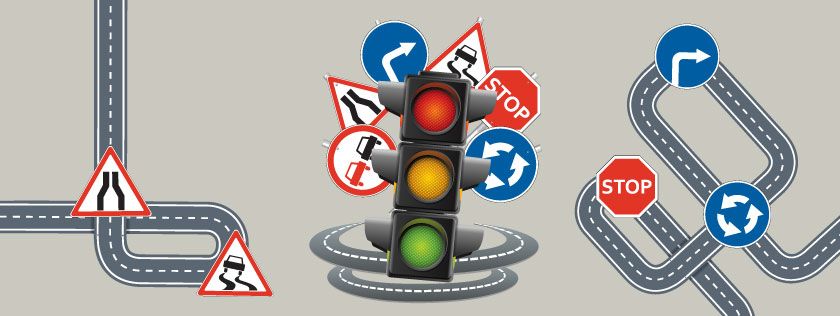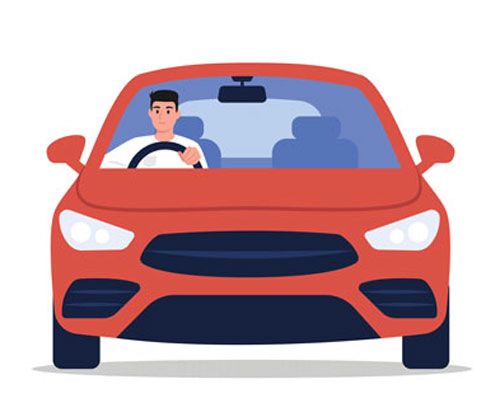Help guide for new drivers

Passing your driving test is an exciting milestone, but it’s natural to feel nervous about going on the road yourself. That’s why it’s important to equip yourself with more than just the basics.
In this guide, you’ll find essential tips every new driver should know so you can enjoy your independence safely.
Top 10 tips for a new driver
- Don’t get distracted - You are responsible for your passengers’ safety. Stay focused and avoid unnecessary conversations, loud music or anything that takes your eyes off the road.
- Know Your Tech - Connect your phone to the car and set your sat nav before you drive. If your car has Android Auto or Apple CarPlay, only use it when you are safe to do so. The less you fiddle with gadgets while driving, the safer you will be.
- Use your Sat Nav wisely – This is a great tool but don’t rely on it. Always keep an eye on the road and pay attention to road signs.
- Belt up - Seat belts crease clothes but they can also save your life. Buckle up every time - no matter how short the journey!
- Never use your phone whilst driving - Texting or scrolling while driving is one of the most dangerous distractions. Put it away until you’re safely parked.
- Know your tyre pressure - Check your tyres regularly and make sure they are correctly inflated. Not only is it fuel efficient, but it also helps keep you safe.
- Take your time – Don’t feel pressured by other drivers to go above the speed limit or make dangerous manoeuvres.
- Watch your speed – Always be cautious of speed limits but especially in bad weather. Wet or icy roads can increase stopping distances so give yourself space.
- Ease into motorway driving – Driving on the motorway might be a bit intimidating at first. Try to make your first trip when traffic is quieter (such as at night) so you can build your confidence.
- Practice makes perfect – Whether it’s night driving, roundabouts or a tricky junction, it all takes experience. The more you practise, the more confident you’ll become.

What you need to know…
Beyond road skills there are practical matters every new driver should consider. Here are some more tips to help you through the next stage of your driving journey.
Insurance
Cost of car insurance is a top concern among Scotland’s young drivers, and with the average yearly cost most then £1400 you can see why.
But there are some ways to reduce the bill.
- Adding a 2nd or 3rd responsible driver like a family member can reduce your car insurance policy.
- You can get the best deal on car insurance by looking between 20 and 27 days before your renewal date and by buying in the morning.
- Consider a black box at least for the first year – allowing your insurer to monitor your driving activity will pay dividends in later years.
- Polish your skills! Doing an advanced driving course or reducing your miles can also help lower your premium.
What is the best car to get as a new and young driver?
Smaller cars with small engines tend to be the most affordable to insure, but that isn’t always the case. Some larger cars can be cost effective to insure too.
Before buying a car it’s best to check:
- Crash safety rating
- Low purchase cost
- Lack of popularity with thieves
Choosing the right car can help reduce your insurance premium with smaller vehicles with low powered engines generally the cheapest to insure.
Among the most recommended are:
- Hyundai i10
- Volkswagen Polo
- Fiat 500
- Toyota Aygo X
- Volkswagen Caddy
- Renault Clio
- Dacia Sandero

Tips for Driving Alone
Driving for the first time alone without another driver or instructor can be nerve wracking but there are steps you can take to help you feel at ease on the road.
Plan ahead for new or long journeys
You won’t always have to plan your route ahead but to begin with, it is a good way to build up confidence with your driving.
Having a sat nav is a great back up if you need help but remember don’t adjust it while driving. Make sure you pull over in a safe place and secure your car before setting it.
Taking breaks on long journey are also really important to help you remain focused on the road - try not to drive for any longer than two hours.
Always make sure you have enough fuel in your car, particularly for long journeys. You won’t be the first (or the last) new driver to grind to a halt on the road.
Know Your Car
Do you know how to put air in your tyres? Or that by law tyres must have 3mm of tread? Can you tell what light is for low brake fluid?
Basic car maintenance and understanding the warning lights is essential for all drivers to help you deal with situations confidently.
Most warnings will pop up on your dashboard and modern cars come with handbooks which explain each symbol in detail.
Emergency car kit
It’s a good idea to keep a phone charger, de-icers, a bottle of windscreen wiper fluid and a spare tyre kit in your car. You can also buy emergency bags with warning triangles, high vis vests, torches and a small first aid kit for a reasonable price.
Always double check your car insurance policy covers you for break down and roadside recovery too.
You’ve been in a crash - don’t panic!
No one ever plans to be in a car accident, but sadly 1 in 5 drivers will be in a collision within a year of passing their test.
But if you are in a crash remember to:
- Get the other drivers details
- Call the police if anyone is injured and seek medical attention
- Take photos and videos of the scene and tag the location
- Don’t admit anything and try not to be intimidated by an older driver
- Get independent advice before you speak to your insurer
- Most importantly…don’t panic!
Becoming a confident driver doesn’t happen overnight. With a little experience and common sense driving will soon feel more manageable and far less daunting.
By following these tips, you will gradually build the skills and confidence you need.